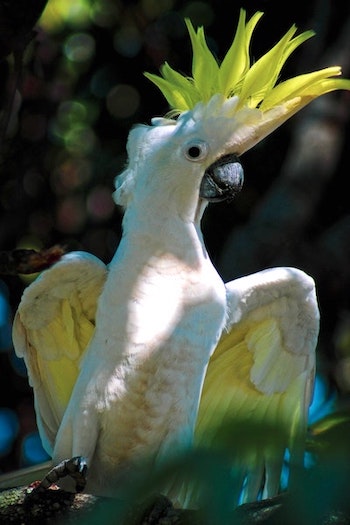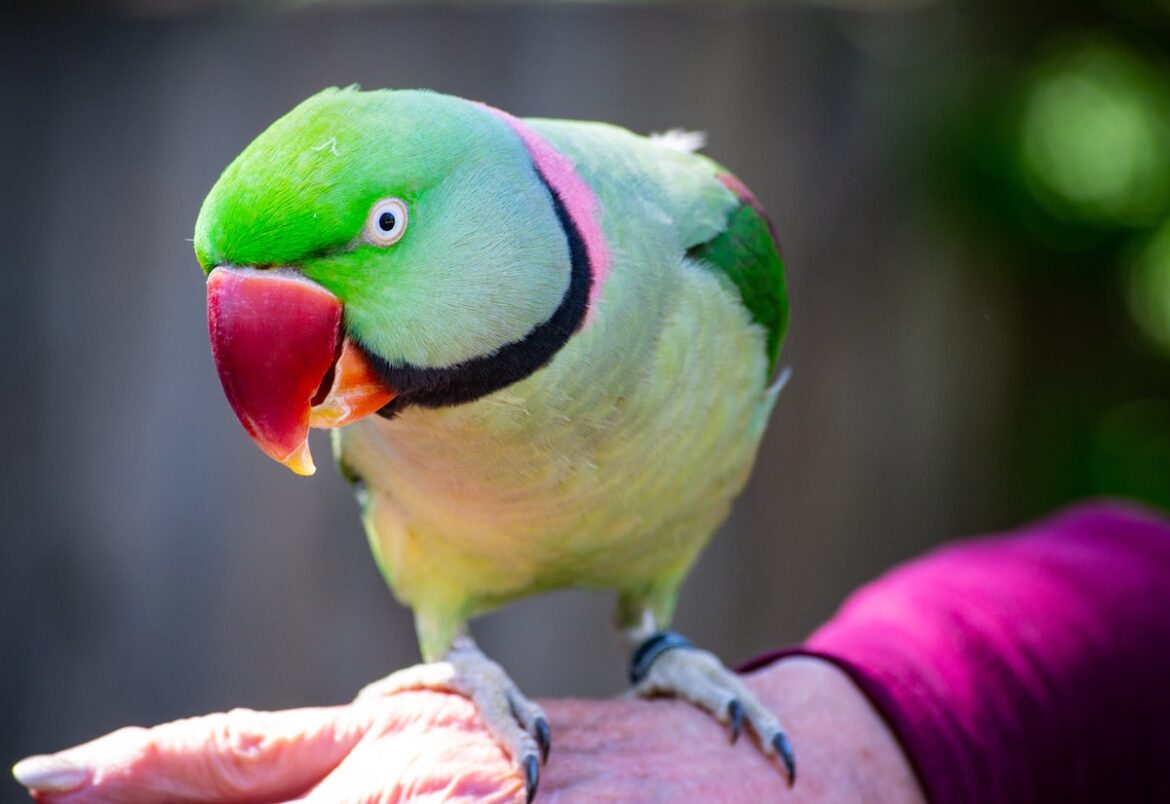It is a common phenomenon among avian lovers to feel totally out of their depth when it comes to understanding the strange behavior of their beloved pets.
Yet, ask any parrot parent how they feel about their birds, and most will claim that their birdie is an irreplaceable part of their family. It’s little wonder that birds, particularly parrots, are the third most favored pets in the world.
As strange as head bobbing birds may seem, this is also quite an adorable and fascinating behavior. Many are left wondering whether their birds love or hate the music they seem to be “dancing” to or if there may be something wrong.
So, why do birds bob their heads to music? There are many reasons birds bob their heads, including to exhibit pleasure or displeasure, as a learning behavior, if they are craving attention, are asking for food, or are bonding. They could also simply be appreciating your choice of music.
Let’s take a look at some of the scenarios when birds bob their heads and examine the possible reasons why your bird is getting their funk on.
Do Birds Appreciate Music?

Yes, birds do appreciate music! Now, studies do show that music has a positive effect, not only on the ambiance but everything that exists within the environment.
Birds, more than any other species in the animal kingdom, are able to distinguish between different pitches, tones, and notes, as they need to pick out their species’ mating calls and other communicative tweets and croons from the crowd.
In fact, perfect pitch may even be more common in birds than humans, as it is more necessary for survival. Hence, many bird lovers find birds reacting to music with the bobbing of their heads.
Moreover, you’ll see that your pet parrot responds to music in an even more pronounced way than wild birds, usually raising their crests and moving their feet as well, as if dancing.
But just because one parrot seems to enjoy rap and bobs its head to it doesn’t necessarily imply that all birds will respond favorably to loud music.
You see, parrots, much like humans, exhibit different personalities as well as preferences.
While some will enjoy hard rock and rap, others take great pleasure in listening to the more soothing symphonies of Bach and Beethoven.
There are even diverse playlists on YouTube to leave on for your parrots’ enjoyment, including anything from reggae to spa music.
So, would it be correct to assume that birds only bob their heads to agreeable situations? On the contrary, nothing could be further from the truth. Continue to read on about some of the occasions when you will probably witness head bobbing from your parrot.
When Do Birds Bob their heads?
As mentioned earlier, it isn’t very reasonable to believe that all birds are the same. They may be almost the same in color, size, and shape, but birds have distinct personalities.
Therefore, making a broad generalization isn’t helpful. Yet collectively, parrots do tend to demonstrate similar characteristics. Let’s look at the various situations where avian guardians find pet parrots bobbing their heads.
But first, if you’ve never seen a bird dancing to music, take a look at this awesome and adorable video about Snowball the Cockatoo from the Sky News channel on YouTube! They’ll also tell you a bit more about why this phenomenon occurs and why it may be evidence of creativity, not just instinct.
1. To Exhibit Pleasure
Yes, parrots love music in general. So, in all likelihood, when you play a playful or lively tune, you’ll see that your parrot appreciates the melody. However, as we mentioned before, different parrots prefer different music. It’s all up to their individual tastes!
If your bird likes to “talk” or mimic, you may even find them “singing” along to the tune, or repeating their favorite part. It’s even a good idea to leave some low music on while you’re gone for your parrot’s enrichment. Don’t leave it on too loud, though, or your poor Polly won’t be able to catch any zzzs.
2. To Show Displeasure
Oddly enough, parrots bob their heads in irritation and anxiety too. So, how can pet parents tell the difference between the head bob that comes from happiness and one that means annoyance? Well, that is a question quickly answered by long-time bird parents that understand their bird’s body language.
When your bird is happy and enjoying the music, it may also mimic the tune with whistling, singing along, and chattering excitedly.
But when your feathered friend is angry and unhappy with the loud noises and strong beat from the speakers, it’ll puff up its feathers. It won’t sway slightly from side to side. Instead, it’ll have sharp, agitated movements announcing something is amiss.
3. Learning Behavior
Young parrots bob their heads quite often. Many birds who shake their heads, including parrots, do that for visual stabilization. Research by Dr. Mark Freidman in the 70s with doves demonstrated that the head movement in birds is more controlled by visual stimulation rather than a movement of the body.
This is also a reason why your bird may sing along to the song, as it is learning new notes and melodies to sing.
4. Craving Extra Attention
This can also a call for attention, especially if no music is playing at all. It isn’t uncommon for some bird parents to leave their bird unattended for prolonged periods. And if your bird happens to be a flock bird, then it’s going to want you to spare some time for it.
So crank that music and spend some quality time with your feathered friend!
5. Calling For Food
Now head bobbing in adult birds is also often associated with hunger. Seeing as how your bird needs all of its energy to live a longer life, parrots call their parents when hunger strikes rather than waiting. It is also a time-saving tactic.
This is less likely to be the case if you turn your music off and they stop bobbing their head. However, if you’ve trained your bird to dance by rewarding this adorable behavior with their favorite treats, then they may be bobbing their head excitedly to get you to feed them.
6. Bonding
Head bobbing occurs naturally when birds are about to regurgitate. This happens most often when parents are feeding their hungry babies.
Kind of like cats considerately bringing their owners dead mice, when birds become close with their humans, they too can regurgitate to bond. And head bobbing comes along with this gross but … kind of sweet gesture of affection.
If this is the reason your parrot looks like they’ve finally perfected their impression of a metalhead, then you’ll know it soon enough.
7. Mating
Of course, mating season is also a huge reason why birds dance in the wild. You may witness your bird not only bobbing their head to music and dancing around but also whistling to the tune. This may be reminiscent of mating calls and displays designed to attract a mate.
Up Next: How Do Lovebirds Sleep?
